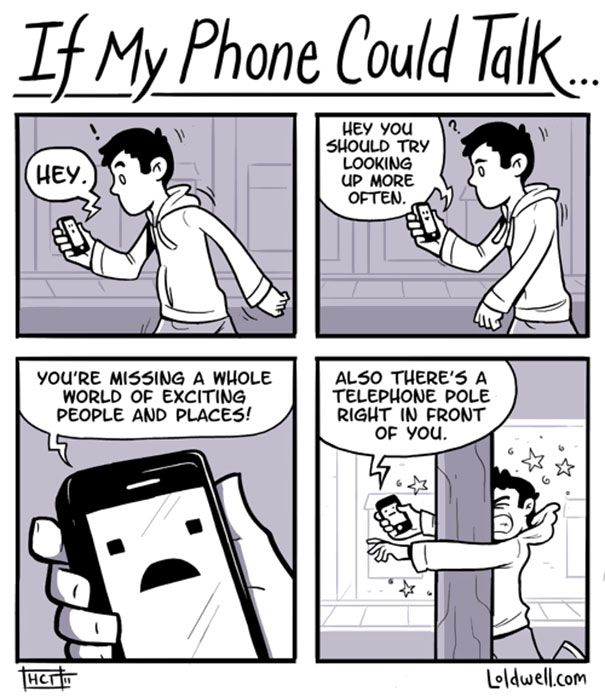There’s no denying that technology has made communication a lot more convenient—especially in the workplace.
Thanks to digital communication tools (like email, texting, and Slack), it’s never been easier (or faster!) to get in touch with your colleagues, whether they’re on the other side of the office or the other side of the world.
But all of that convenience?
It comes at a price.
It seems the more we’ve come to rely on “simple and fast” digital communication, the more challenging it has become to have meaningful conversations—and our productivity, and overall success (both in and out of the workplace) are suffering as a result.
If you want to be your most productive, successful self, you need to go a step beyond the communication tools themselves. Research from famed UCLA professor Albert Mehrabian found that only 7 percent of communication comes from the words you use; the rest of what you communicate comes from your voice and tone (38 percent) and your body language (55 percent).
So that means when you send a virtual message, 93 percent of what you’re trying to communicate may be lost.
If you really want to communicate effectively, you need to connect and converse with the people around you—beyond words on a screen.
We spoke to Celeste Headlee, author, speaker, and expert on all-things-communication behind the viral TED talk 10 Ways To Have a Better Conversation to get her expert insights on why conversation is so important in the workplace—and the conversation strategies you can use to excel at work, increase your productivity, and strengthen your relationships (both professionally and personally).
Let’s get to talking!
Why Conversations Matter To Your Career
First things first—before we jump into how to improve the quality of your conversations (and excel at work as a result), let’s first talk about why, exactly, conversation is so important.
“Human success is built on our social interactions,” says Headlee. “In other words, our success as a species has always been built not on our physical prowess or intellectual achievements, but mostly on our ability to communicate and collaborate… That’s how we relate to each other. It’s how we get things done.”
Unfortunately, when it comes to true connection, in today’s culture of 24/7 connectivity, the cards are, in many ways, stacked against us.
“We live in a culture of distraction, and it is very difficult to maintain a good conversation if you can’t focus on what’s being said, instead of your brain wandering off in a million different directions, instead of having yourself interrupted by a cell phone chiming or ringing or whatever [the distraction] may be,” says Headlee.
In addition to being a distraction, technology can also be all-consuming (we’re looking at you, social media) and the more absorbed you are in what’s going on in your phone or on your computer screen, the harder it is to fully engage with people IRL.

“[Technology is] making us more likely to be self-absorbed—and obviously that’s a problem in a conversation, because you have to be able to share space,” says Headlee. “A true conversation is a back and forth. It’s turn-taking.”
All of this is keeping people from actually conversing in the workplace.
And when people don’t talk, they end up working in silos—and not encouraging and fostering open communication and conversation in the workplace can lead to a fear of speaking up and a lack of psychological safety at work.
But just because having meaningful conversations is more challenging in today’s digital universe certainly doesn’t mean it’s impossible! With a few simple changes, you can make connecting through conversations a priority—and completely change your work, productivity, and relationships in the process.
How To Have Better Conversations To Excel At Work
Clearly, fostering real, meaningful conversations is important. But what are some concrete steps you can take to make conversation a priority in the workplace—and skyrocket your success as a result?
Embrace Small Talk
Like anything else, if you want to get better at fostering more meaningful communication, it’s best to start small (you don’t want to be pinned as the over-sharer).
Small talk might not have the best reputation (really, who wants to talk about the weather?), but the truth is, it actually has a host of benefits—particularly when it comes to productivity.
A 2010 study found that brief, “getting-to-know-you” interactions actually boost the brain’s executive functions, a set of mental processes responsible for everything from attention and focus to time management to organization.
Not only can small talk help to improve brain function, but it can also make you happier.
A 2013 study on social interactions and well-being found that people who engaged in small talk with their Starbucks barista experienced more positive effect than those who skipped the conversation in favor of efficiency (and getting their latte ASAP).
“Even though you may think small talk is worthless, your body and your brain and your emotional health don’t think so at all,” says Headlee. “Small talk should be embraced and appreciated because you do get a boost from it.”
The point is, small talk might seem trivial. But those casual conversations can actually have a big impact on your focus, attention, and overall mood—all of which play a major part in powering through those big projects or small to-do list tasks.
So, catch up with your coworker about your weekend. Chat about the latest episode of The Great British Bake Off in the elevator. Make it a point to incorporate small talk (with your colleagues, your office mates, your barista, and everyone in between) into your day and reap the rewards as a result.
Practice Listening
When most people have a conversation, they’re focused on what they’re going to say. But if you want to have better conversations (and use those conversations to get more done and excel at work) you need to move the focus away from talking and onto listening.
According to Headlee, listening is the most important part of having a quality conversation—and it’s also the area most people struggle with.
In her TED Talk, Headlee lists a number of reasons why it’s much easier for most people to talk instead of listen, from having a sense of control over the conversation to struggling to pay attention to what the other person is saying. But if you’re not listening, “You’re not in a conversation. You’re just two people shouting barely related sentences in the same place,” she says.
So, how do you get better at listening?
The same way you get to Carnegie Hall—practice, practice, practice.

“Active listening is never going to be really easy…You have to think of it more like going to the gym. They’ll never come a point in your life where you’re like, ‘okay I’m fit now. Now I never have to exercise again,’” says Headlee. “It’s the same thing with your listening skills. It’s just something you’re going to have to work on constantly.”
If you want to improve the quality of your conversations at work, look for opportunities to hone your listening skills.
When you’re having a conversation with a coworker, don’t spend the entire time thinking about what you’re going to say next; instead, focus on just listening. Not only will you get more from each of your conversations, but it can also help you gain trust and influence.
Research from Columbia University found that listening is “positively related to influence, over and above the impact of verbal expression.” The study also found that “listening partly mediated the relationships between each of openness and agreeableness and influence.”
This one shift—approaching conversations with the goal to understand instead of to be understood—can completely change the way you converse with and relate to people. And that change can help you get ahead in your career and in your life.
Say Goodbye To Open Workspaces (Or At Least Make Things A Little Less Open)
Open workspaces are still having a moment. But the truth is, they don’t really work—especially when it comes to fostering meaningful conversations in the workplace. “[Open office spaces] may have been intended to inspire conversation, but they’ve done the opposite,” says Headlee.
Researchers from Harvard University found that switching to an open office layout cut face-to-face conversations by as much as 70 percent.
The reason? People need a certain level of privacy to connect—and that privacy just doesn’t exist in open workspaces.
For example, you might be hesitant to stop by a coworkers desk to ask a question when you know the entire marketing department can hear your conversation. Or, you might want to sit down and have an important face-to-face with your colleague, but find you’re both just too distracted by everything that’s going on around you to focus.
Studies show that just hearing someone else talk on the phone can negatively impact your attention span—so imagine how hard it is to pay attention to a conversation when there’s an entire open workspace full of distractions to deal with.
Now, if you already have an open office layout, a complete redesign might not be in the cards (or in the budget). And that’s ok!
By creating pockets of privacy within the open workspace, you can give your team the spaces they need to get work done distraction free—which will make it easier to foster conversation outside of those spaces.
So, for example, if things are getting a little loud in the open area, let team members who want some peace and quiet to use a conference room to get things done. Or, designate certain areas of your open workspace as “quiet zones,” where teams know they can go if they need to focus.
You can also invest in a soundproof pod (like these awesome phonebooths from ROOM) that will allow you or your employees to step away for a phone call or video chat—without interruptions or distracting the rest of the team.
The point is, the lack of privacy in an open workspace can make it hard to foster meaningful conversations—but by creating some privacy, you make it easier (and more likely) for people to connect.
Take Your Conversations Outside
If you find that you’re stuck in a conversation that isn’t going anywhere, a change of scenery can work wonders. And the best change of scenery if you want to foster more productive connections? Take your conversation outside.
The longer you talk, the harder it can be to focus, which makes it hard to have productive conversations.
“The human brain can really only focus for 45 to 50 minutes at a time and then it needs a break,” says Headlee. “And the best break you can take is one in which you see some kind of greenery or foliage or nature.”
Not only does changing the setting and taking your conversation outside act as a pattern interrupt (which can make it easier to refocus), but spending time outdoors can reduce stress levels, increase positive emotions, spark creativity, and foster a sense of openness—all of which can help you have more productive, meaningful conversations.

So, the next time you feel like you’re not getting as much out of your conversation as you could be, do yourselves a favor and go for a literal walk in the park.
Good Conversations Can Help You Be More Productive And Successful
Good conversations can help pave the way for increased productivity and more meaningful connections whether that’s in the office, on a video call, or at home on the comforts of your couch.
So the next time you’re tempted to shoot off an email with an update, make an effort to talk it out with your colleague instead. You (and your career) won’t regret it!
Next: Why Willpower Alone Won’t Make You More Productive (And What To Do Instead)








































